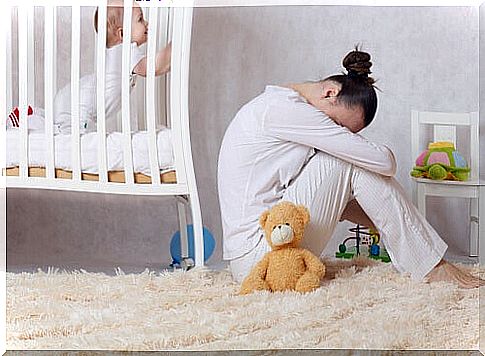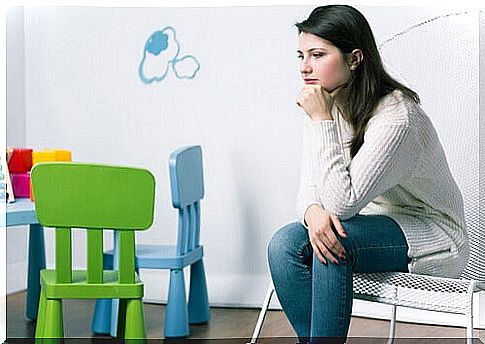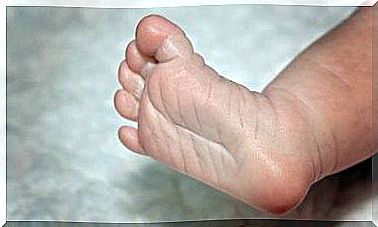Postpartum Depression: Causes, Symptoms And Tips To Fight It – You Are Mom

Being a mom is a lot more than we can explain to you. Sometimes not everything is as beautiful as you might think and that confuses you. It’s not uncommon to hear about postpartum depression, but you might want to know more about this common phenomenon.
When you hear “postpartum depression” you tend to think of a mother overwhelmed by a crying baby in her arms. But postpartum depression is actually more than that. First of all, postpartum depression is a type of depression that appears in women. It is characterized by its presence immediately after childbirth and can last up to a year afterwards. There is also postpartum depression in men, although this has a lower incidence than that of women.
According to studies that have been done, up to 25% of women may have one or more symptoms characteristic of postpartum depression. In other words, its frequency is quite high. It is therefore recommended to inquire about this.
Causes of postpartum depression
Postpartum depression can be the result of several factors that predispose a woman to have it. Some of them are:
- Physical changes. Pregnancy completely transforms a woman’s body. After you give birth, the reason for all of these changes lies outside of your body. It is therefore difficult to assume that your body will need time to recover.
- Changes in the entourage. You now have a child. A baby who will demand all your resources from the first moment. You will see how your social or work relationships are affected now that you can no longer be everywhere.
- The loss of independence and personal space. The baby’s level of attention demand far exceeds what you imagined, and makes you lose your own personal space for a while.
- Lack of sleep. The fatigue that accompanies the first months of motherhood is well known. Lack of rest promotes the exhaustion that accompanies depressive thoughts.
- The concept of what it is to be a good mother. Letting those around you influence you on what to do, in addition to your own beliefs, can conflict with reality. This clash of ideas can confuse you.
- Associated disorders such as depression, bipolar disorder or anxiety problems.
- The use of drugs, alcohol or harmful behaviors during pregnancy.
Symptoms of postpartum depression
Before talking about the symptoms, it is necessary to clarify that the first two weeks after birth are filled with tears, anxiety and feelings of overwhelm. However, postpartum depression takes the sadness to a higher level, causing the mother to change behavior in relation to the baby:
- Excess or lack of interest in the newborn.
- The fear of being alone with the child.
- A lack of total care for herself and the baby.
To these changes in behavior, we must add the following symptomatology :
- Restlessness and irritability.
- A high level of anxiety.
- Sleep problems.
- Changes in appetite.
- Feelings of worthlessness or guilt.
- Apathy.
- Loss of focus and energy.
- Thoughts of death / suicide.
What can be done to fight postpartum depression?
Most importantly, you know it’s more common than you might think. Motherhood is difficult and involves many changes that you must adapt to quickly. It is therefore not easy to assume it entirely.

If you notice that the sadness of the first two weeks with your newborn is prolonged, see a professional. Whether it is medication or therapy, it is important that you follow professional recommendations.
In addition, you may find these tips helpful in coping with postpartum depression:
- Seek support from those around you. Your companion, family and close friends can help you take care of the house or the baby.
- Don’t be ashamed of what is happening to you. Don’t hide your feelings and don’t feel guilty about them. You have the right to feel sad and overwhelmed by the situation.
- Try to talk to other mothers about it. Many mothers believe that they should be happy and hide what is really happening to them for fear of being judged.
- There is no such thing as a perfect mother, there are only good mothers. Take care of recuperation to give your baby the best version of yourself. He will love you more than anything and everyone. Do not worry.
Most importantly, the idea that your child will need you more than anyone else in the world will help you draw the inner strength you need.









